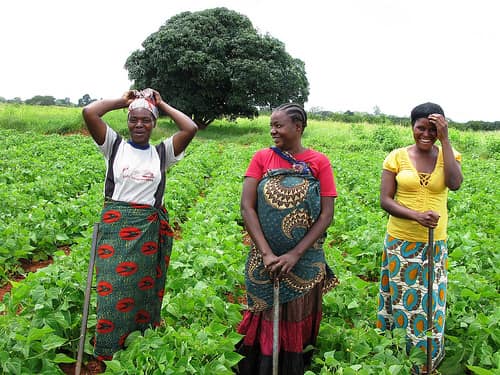Gender-based violence risk spikes on farms
This article was first published on the website of Hivos Soutern Africa.
Lockdown measures imposed as a response to the COVID-19 pandemic are putting women at heightened risk of gender-based violence (GBV) at home and cutting them off from essential protection services and social networks. This was revealed in a Hivos-commissioned survey by Labour and Economic Development Research Institute of Zimbabwe (LEDRIZ) titled Impact of Covid-19 on the Horticulture Sector in Zimbabwe. The survey was conducted in May 2020.
“Whilst no concrete number of GBV cases could be obtained, interviews with women clearly indicated the tense environment that can easily escalate to GBV in homes,” the survey says.
The Government of Zimbabwe put in place COVID-19 response mechanisms which included a 21-day national lockdown from 30 March to 19 April 2020. This was subsequently extended by two weeks to the 3 May 2020 and by a further two weeks to 17 May but under relaxed conditions.
On the 16 May, the lockdown was extended indefinitely with restrictions to be reviewed every two weeks.
“The very conditions that are needed to battle the disease — isolation, social distancing and restrictions on freedom of movement — are, perversely, the very conditions that feed into the hands of abusers who now find state-sanctioned circumstances tailor-made for unleashing abuse,” says the survey.
The ever-increasing prices of basic commodities such as food items against stagnant incomes have increased economic pressure on the households.
According to the survey, the economic pressures, combined with increased poverty, confinement and refusal of conjugal rights due to lack of contraceptives tend to increase psychosocial and mental stress which are drivers of GBV both at work and at home for women workers.
Evidence from past epidemics, according to the survey, indicates healthcare resources are often diverted from routine health services.
This further reduces the already limited access of many girls and young women to sexual and reproductive health services, as well as maternal, new-born and child health services.
Challenges in accessing sexual and reproductive health information services – including contraception and other medications – worsen the risks to girls’ and women’s health and lives.
“The availability of contraception and services for other needs have been disrupted. Women using contraceptives pills no longer have access to them and sadly due to the national lockdown they cannot travel to other areas to access them.”
Women noted that this has seen an increase in GBV, as the emotions and tempers are high when husbands demand sex which they cannot get due to the absence of contraception.
Respondents told the survey that having to inform their husbands that they cannot participate in any sexual activity for the whole lockdown period has sparked cases of GBV in some instances.
Lack of access to contraceptives is due to the fact that most medical facilities are not on the farm and are a distance away from the farm some as far as 10-15 km away yet there are strict travel restrictions due to the lockdown.




